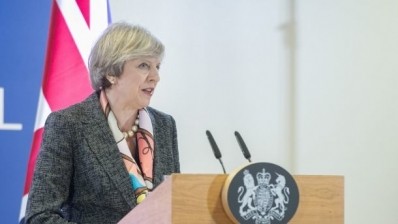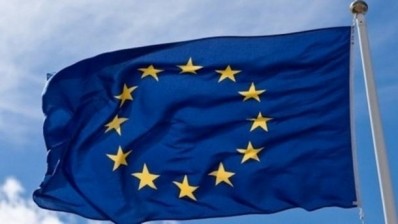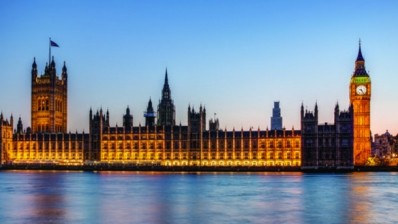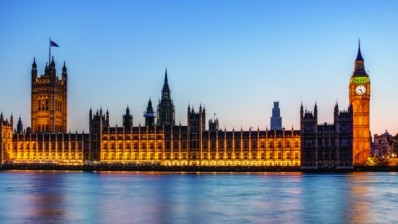What the Conservative and DUP deal means for pubs
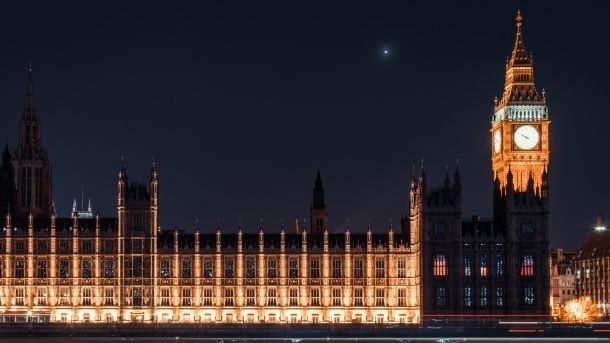
The deal is done. The Democratic Unionist Party (DUP) and the Conservatives have signed a confidence and supply agreement. It means the DUP’s 10 MPs will support the Conservatives on key votes in the House of Commons. While it is not an official coalition, it has involved some level of compromise that has saved the Tories from trying to limp along as a minority Government.
Under the agreement, about £1bn in ‘new money’ has been earmarked for Northern Ireland and greater flexibility given over £500m already allocated to the country.
A three-page document outlining the terms of the deal has been published. It states: “The DUP agrees to support the Government on all motions of confidence; and on the Queen’s Speech; the Budget; finance bills; money bills; supply and appropriation legislation; and estimates.”
The party has also made an agreement to support the Government with all its legislation relating to Brexit, effectively giving the Tories more control over the negotiations.
It is early days in the relationship but the DUP has already had an influence on Government policy. Leader Arlene Foster confirmed there would not be any changes to the triple lock on pensions, with the Tories also abandoning plans to means test winter fuel payments. There has also been a change in approach to the Brexit negotiations focusing on a softer strategy rather than Prime Minister Theresa May’s previous ‘hard’ Brexit.
There has inevitably been raft of criticism of the deal but it could not have come at a better time for the pub industry.
Consumer confidence has already collapsed following the general election at the beginning of June. Data from YouGov and the Centre for Economics and Business Research last week shows that consumer confidence is at its lowest since the summer of 2013. The only time it was worse was just after last year’s Brexit vote. The analysis reveals that in the first eight days of June, before the election, consumer confidence was holding, but it fell significantly after the results came in.
Consumer confidence concern
Consumer confidence can have a dramatic impact on the pub trade and is one of the major fears of the industry. Who wants to go out when they are not sure about their job security or how much their food shopping is going to cost?
Trade associations came out to say that when the deal was signed with the DUP, it provided some certainty for the hospitality sector, especially with Brexit negotiations ongoing.
Association of Licensed Multiple Retailers (ALMR) chief executive Kate Nicholls says a healthy working majority provides “certainty and stability for businesses”, in the context of commitments set out in the manifesto.
She also admits the agreement is “potentially positive” for operators, who largely favour trade and employment deals with the EU at the “softer” end of the scale. The industry wants compromise and quick solutions over immigrant workers and trade deals such as food imports.
However, Nicholls raises some concern about policy issues becoming “political footballs”, with parties looking for popularity and considering the possibility of another impending general election, rather than a full five-year term.
British Beer & Pub Association chief executive Brigid Simmonds agrees the deal, which gives the Tories a majority, offers more stability for the pub and brewery sector.
“What UK business needs is more certainty, and today’s deal should mean that the Government has a working majority in parliament as the Brexit negotiations proceed,” she says.
But even more interesting was one detail, which was glossed over by much of the mainstream media.
The Government will conduct a consultative report looking into the impact of VAT and air passenger duty on tourism businesses in Northern Ireland.
The DUP has been a strong supporter of reducing VAT to boost the tourism sector of Northern Ireland. In its Making the most of Northern Ireland’s Tourist Potential report, published in 2015, it reveals support for a cut in the VAT rate on food and accommodation. It says it believes that an increase in overnight stays and meals would sustain and create jobs, and enable small businesses to compete with other destinations across Europe and, in particular, the Republic of Ireland.
“The UK currently applies one of the highest rates of VAT on hotel accommodation and restaurant meals in Europe, with only Denmark charging a rate higher than the current UK rate of 20%,” the report says.
“Most other countries were already charging or have introduced a lower rate as a means of boosting their tourism revenues.”
The news of the issue being placed back on the political agenda saw widespread reaction from across the trade with VAT campaigners circling.
The trade association for Northern Ireland, Hospitality Ulster, has been heavily campaigning on the issue of a VAT cut on food and accommodation.
Chief executive Colin Neill says he believes the Conservative DUP deal is good news for the pub sector across the whole of the UK. He works closely with the DUP and other political parties and says Hospitality Ulster is sympathetic to the plight of the pub trade and the wider sector.
Having the ear of Government
He also believes the DUP could have some influence because it currently has the ‘ear’ of the Government and could fight the case for a VAT cut for the whole hospitality sector.
“At its current 20%, VAT puts us at a competitive disadvantage and acts as a brake on the growth of our hospitality sector, which is a crucial part of the NI economy, employing more than 60,000 people,” argues Neill.
BBPA’s Simmonds agrees that any deal could have a positive impact on the pub sector outside Northern Ireland.
“It is important to stress that while this has a big impact in Northern Ireland, high rates of VAT on hospitality is very much a UK-wide issue, so we
will be looking closely at what emerges,” she says.
“At the BBPA, we work closely with Hospitality Ulster, and the DUP has always been very supportive of key issues for the sector, not least the campaign for lower beer duty. We will certainly be reaching out to Northern Ireland’s MPs as we do with all MPs in the new intake.”
The ALMR’s own research last year predicted that a reduced VAT rate of 15% on hospitality would lead to a net increase in employment of 52,000 jobs in the UK – at 10%, it would be 110,000 jobs.
“The positive impacts would reach far more widely than just hospitality, benefiting the wider economy, too,” says Nicholls.
The British Hospitality Association also waded in, welcoming the news and highlighting that tourism VAT across the UK is a key pillar of its own recommendations.
And then Dermot King, chairman of the Campaign to Cut Tourism VAT, said it will be submitting its own evidence in support of the cut.
“The commitment to consult on the impact of tourism VAT in the DUP-Conservative deal shows the importance of the growing and successful hospitality and tourism sector to the economies of Northern Ireland and the entire United Kingdom,” he argues.
While the DUP’s agreement may have indeed opened a can of worms over the VAT issue, there is nothing set in stone. While there will be an investigation, it does not mean action.
The former campaign for a VAT cut fell on deaf ears with the Government, and the timing was not exactly ideal being right in the middle of an austerity push. The biggest supporter of a cut in VAT was JD Wetherspoon boss Tim Martin and he is positive that this could be rising back up the political agenda.
“I’ve spoken to a number of MPs from all the main political parties in the UK in recent years, who are sympathetic to the case for tax equality for pubs and supermarkets,” he told The Morning Advertiser.
“Pubs and restaurants generate far more jobs and taxes per meal or pint than supermarkets, so it makes no sense for supermarkets to have more favourable treatment.
“Politicians including the DUP, across the spectrum in Northern Ireland, are sensitive to the issue, since the Republic has lowered VAT for pub meals.”
While the political situation is unlikely to mean any changes in VAT in the short term, the DUP call raises a glimmer of hope for the hospitality sector. While the consultative report focusing on tourism is for Northern Ireland, it is thought it could open the door for more advanced discussions on the issue across the UK.
Facing political challenges
Brexit negotiations are also set to continue and overcoming the EU’s hard stance on issues such as the British offer for EU workers looks likely to be a drawn out affair.
How the DUP and Conservatives deal works in practice is another challenge to be faced politically. Will the agreement work and will the Conservative Government be able to offer the stability that the country needs? At least the Government is no longer limping on with no majority amid lots of uncertainty. Only time will tell, but there is no doubt that the DUP’s agreement to get the Government looking at VAT rates in NI has reignited the issue across the UK.
